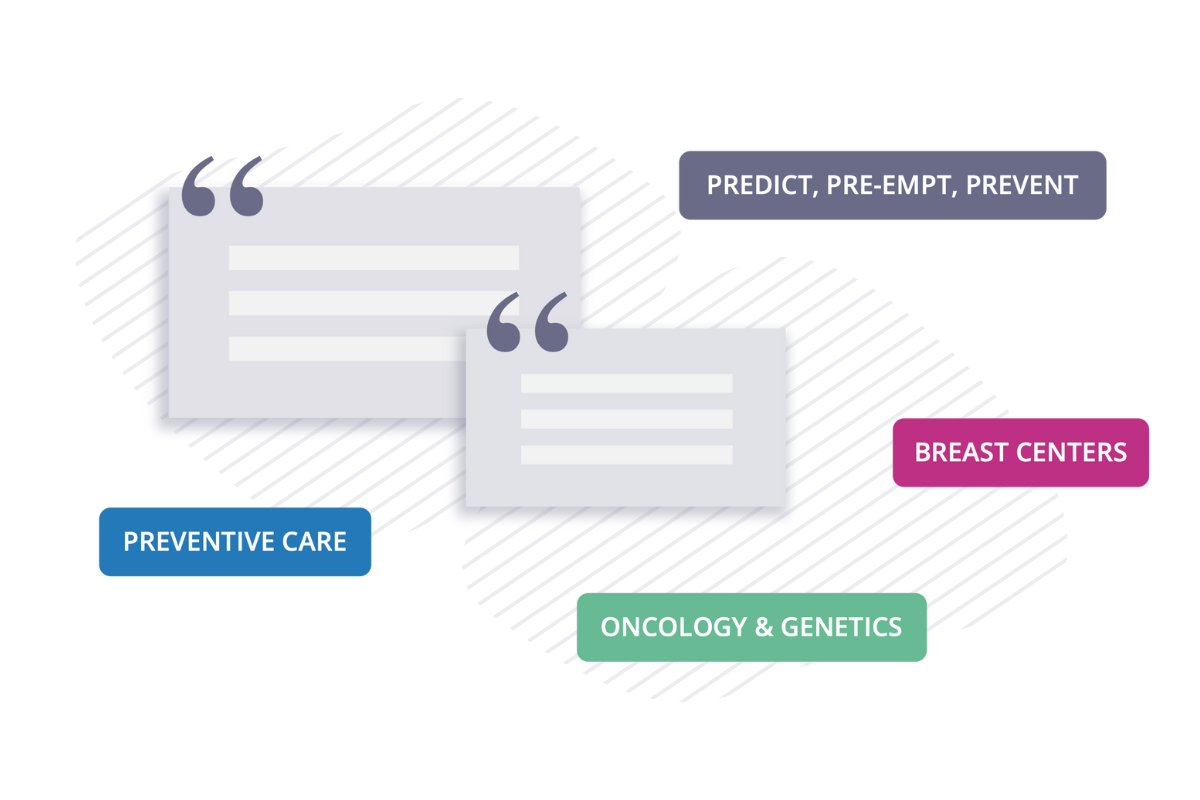Watch: How to Transform Your Genetics Program into a Profit Center
There are many clear benefits to building a genetics program focused on identifying and treating patients with a high risk of a cancer diagnosis.

There are many clear benefits to building a genetics program focused on identifying and treating patients with a high risk of a cancer diagnosis.
At the 10th Annual Clinical Cancer Genetics & Genomics Conference Haibo Lu and Matt Valin presented the challenges of high-risk cancer program design.
Digital health innovation is messy, gritty, iterative, and most importantly, it takes place across the healthcare ecosystem.
Increase patient uptake of high-risk services with smarter assessment software and a point-of-care scheduling model.
Scale the cancer risk assessment program to identify more high-risk patients, increase service capacity, and manage care over time.
Learn how a cancer genetic counseling program was able to convert more referrals, improve productivity, and drive downstream revenues.
Software screening solutions remove the obstacles and paperwork that impede breast cancer risk assessment workflows.